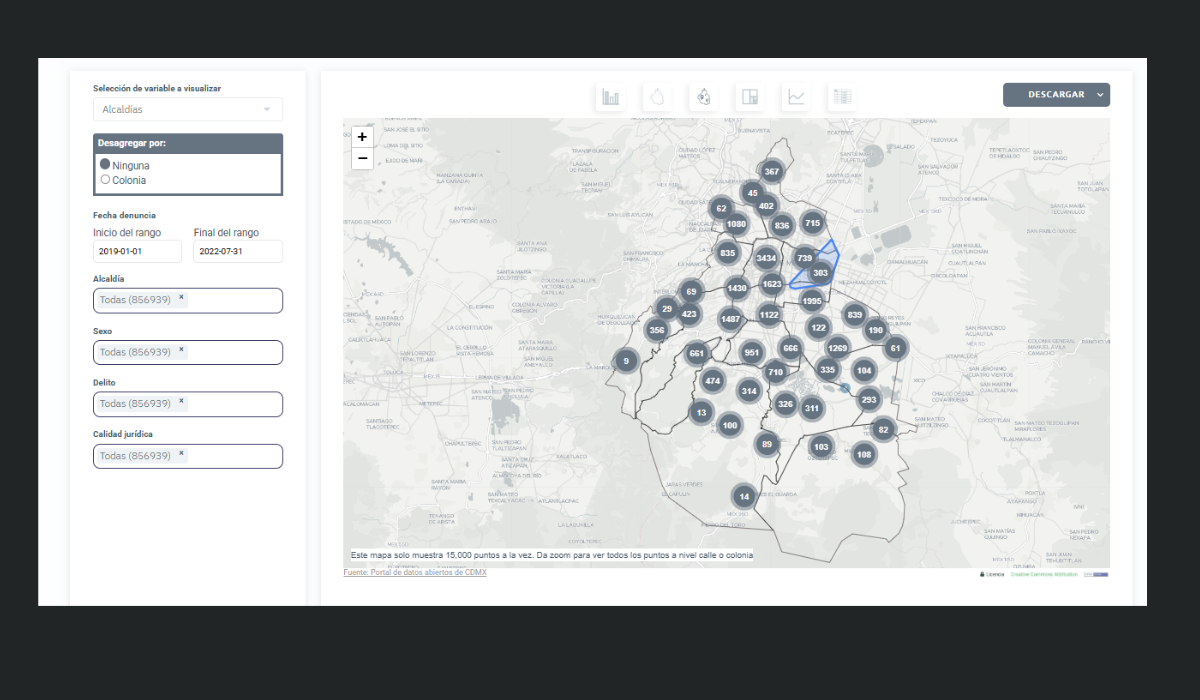
The client
The Digital Agency for Public Innovation (ADIP) of Mexico City is the organization responsible for designing, implementing, and overseeing the digital agenda and technological innovation in one of the world’s largest metropolises, serving more than 9 million inhabitants.
The challenge
Mexico City, as one of the world’s most dynamic megalopolises, generates millions of data points daily about its operations. ADIP, created in 2019, was tasked with transforming the city through technology and data. Their first major challenge was to implement an open data policy that would make government information accessible to all city stakeholders, from municipal agencies to citizens.
The main challenge consisted of transforming scattered data in different formats and sources into accessible and useful information for citizens. This involved integrating information from all government agencies, transforming scattered data into accessible knowledge, and maintaining constant real-time updates, ensuring that the information was clear and understandable for both researchers and citizens without technical expertise.
The solution
In 2022, ADIP partnered with Datasketch to develop a comprehensive solution: an open data portal that transforms government information into interactive and accessible visualizations. This platform allows users to explore public data from multiple approaches, encompassing neighborhood service maps and temporal analyses of urban indicators. The solution integrates information on mobility, the environment, security, and gender issues, enabling users to create their own visualizations.
The project was designed considering how different users, from journalists to interested citizens, need to access and use this information. The platform allows users to explore data by creating air quality graphs, analyzing security trends, and downloading data for independent projects.
Impact and results
The implementation of this solution has significantly transformed how Mexico City manages and shares its information. The platform currently hosts more than 400 datasets for any citizen to visualize, analyze, and download, fundamentally transforming the relationship between government and society through transparency and access to information. The project has enabled better coordination between departments and the creation of evidence- based policies. Information that had never been public before, such as street-level crime data from the prosecutor’s office, has been made available. This has catalyzed innovations like the “Hoyo de Crimen” application, which suggests safe routes based on updated crime data.
Innovation and added value
This initiative demonstrates how technology can transform government transparency and citizen engagement through data democratization. The project has not only improved accessibility to public information but has also set a new standard for digital innovation in public administration. The platform represents a paradigm shift in how governments can use technology to better serve their citizens, facilitating evidence-based decision-making and promoting a more informed and participative citizenry.